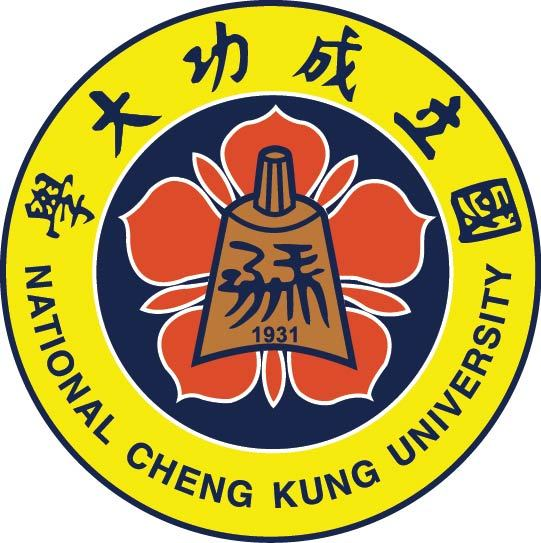Integrated Mechano Biosystems Lab
Research Field
Dr. Ting-Yuan (TY) Tu is an Associate Professor at the Department of Biomedical Engineering, National Cheng Kung University (NCKU), where he has been a faculty member since 2016. He holds a B.S. in Energy and Air-conditioning and Refrigeration Engineering from National Taipei University of Technology, an M.S. in Applied Mechanics from National Taiwan University (focusing on thermal-fluid engineering and MEMS), and a Ph.D. in Mechanobiology from the National University of Singapore, where he conducted his research at the Singapore-MIT Alliance for Research and Technology (SMART).
Before joining academia, Dr. Tu worked as an Application Scientist at Clearbridge Biomedics, contributing to the development of downstream assays for analyzing circulating tumor cells. At NCKU, his research has pioneered the development of biomimetic in vitro tumor microenvironments and 3D microfluidic platforms for cancer drug discovery. His work integrates engineering and biology, focusing on cancer metastasis, tumor-stroma interactions, and innovative therapeutic strategies.
Founded in August 2016, IMBSLab is an interdisciplinary research laboratory dedicated to integrating engineering and biology to advance the understanding of disease mechanisms and develop innovative therapeutic strategies. Our mission is to create cutting-edge in vitro cell and tissue culture models that mimic physiological and pathological conditions, enabling insights into complex biological processes.
Our key research areas include:
- Cancer Metastasis and Tumor Microenvironment: Developing advanced tumor-on-chip platforms to investigate the spatial and interfacial mechanisms of cancer metastasis, with a focus on circulating tumor microemboli (CTM) and their role in invasion and progression.
- Ligamentum Flavum Hypertrophy and Biomechanics: Exploring extracellular matrix remodeling, fiber alignment, and mechanical stiffness to understand ligament degeneration and hypertrophy.
- Liver Tissue Engineering and Drug Metabolism: Utilizing 3D liver spheroid models to study drug metabolism, hepatotoxicity, and tissue-specific responses.
- Microfluidic and Rapid Prototyping Technologies: Employing microfluidics, acoustic manipulation, and advanced manufacturing to create precise, scalable models for biomedical research.
We embrace a multidisciplinary approach, integrating fields such as microfluidics, extracellular matrix materials, advanced imaging, and biomechanics to address critical challenges in biomedical engineering. IMBSLab is committed to fostering a collaborative environment, welcoming students and researchers from diverse backgrounds who share our passion for innovation at the intersection of engineering and biology.
The International Internship Pilot Program (IIPP): Advancing Cancer Research Through Deep Learning and Tissue Engineering
The Integrated MechanoBio System Laboratory invites applications for its three-month International Internship Pilot Program, designed for researchers with prior experience in engineering, biology, or related fields. This program is tailored for individuals ready to expand their expertise in cutting-edge cancer research, offering two specialized topics:
Topic 1: Tissue Engineering in Cancer Organoids for Therapeutic Development
This topic is ideal for participants with a background in cell biology, tissue engineering, or biomedical engineering. It focuses on:
- Developing 3D tumor models that mimic the tumor microenvironment.
- Exploring therapeutic interventions through organoid-based systems.
- Utilizing microfluidic platforms for studying cancer progression and testing treatments.
Participants will deepen their understanding of tissue engineering principles and gain hands-on experience with advanced experimental techniques.
Topic 2: Deep Learning for Image Analysis in Cancer Research
Designed for individuals with experience in computational biology, data science, or AI, this topic centers on:
- Applying AI-driven algorithms for analyzing cancer imaging data.
- Developing computational methods for drug screening in 3D tumor models.
- Identifying drug synergies using high-dimensional datasets.
This topic equips participants to harness deep learning for impactful image-based cancer analysis and therapeutic discovery.
Program Highlights
- A rigorous, immersive experience integrating wet and dry lab techniques.
- Access to state-of-the-art facilities and mentorship from experienced researchers.
- An opportunity to contribute to ongoing cancer research in a collaborative, multidisciplinary environment.
- Exposure to a vibrant Taiwanese academic and cultural setting, enriching your professional and personal growth.
This program is designed for those with relevant prior knowledge who are ready to contribute and refine their skills.
Apply Now to Advance Your Expertise and Join the Fight Against Cancer!
Outstanding Young Scholars Paper Award, Taiwan Chemical Sensors Association, Taiwan 2021
Teaching Excellence Award, National Cheng Kung University, Taiwan 2021
Future Star Research Award, College of Engineering, National Cheng Kung University, Taiwan 2021
Excellence Performance Award in Teaching Practice Research Grant, Ministry of Education, Taiwan, 2021
MOST Young Scholar Fellowship Program, Ministry of Science and Technology, Taiwan, 2019
1st Prize Young Investigator Award, Global Conference on Biomedical Engineering (GCBME), Taoyuan, Taiwan, 2018
Ph.D. in Mechanobiology, National University of Singapore, Singapore, 2015
M.S. in Applied Mechanics, National Taiwan University, Taiwan, 2009
B.S. in Energy and AC&R, National Taipei University of Technology, Taiwan, 2007
2 Vacancies
Job Description
Job 1 Responsibilities
- Perform cell culture and handle 3D organoid models.
- Fabricate and optimize microfluidic devices for cancer research.
- Conduct molecular and biomechanical analyses of tumor models.
- Collaborate with a multidisciplinary team to advance therapeutic development.
Job 2 Responsibilities
- Design and implement machine learning models for cancer imaging analysis.
- Process and analyze imaging data from 3D tumor models.
- Collaborate on computational methods to advance precision medicine.
- Work closely with researchers to integrate AI tools into experimental workflows.
Preferred Intern Education Level
Job 1
- Graduate students in Biomedical Engineering, Tissue Engineering, or a related field.
Job 2
- Undergraduate (senior year) or graduate students in Computational Biology, Data Science, or Bioinformatics.
Skill sets or Qualities
Job 1
- Hands-on experience with cell culture and microfluidic device fabrication.
- Knowledge of ECM biology or tissue engineering principles.
- Strong attention to detail and organizational skills.
- Ability to work independently and in a team-oriented setting.
Job 2
- Proficiency in programming languages such as Python or MATLAB.
- Familiarity with machine learning frameworks (e.g., TensorFlow, PyTorch).
- Strong analytical skills and experience with data processing.
- Ability to communicate complex ideas effectively in a multidisciplinary team.
